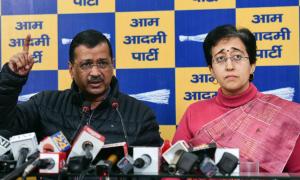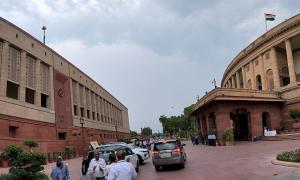Nepal's Interim Constitution would be promulgated by mid-January, which would pave the way for a five-member Maoist team to join the interim government by the end of the month, a senior Nepalese minister said on Tuesday.
"Once the United Nations monitors arrive on January 7, it will take them one week to settle things and after January 15, the monitoring of arms and the armies will start paving way for the promulgation of the Interim Constitution," Minister for Tourism and Civil Aviation and a member of the government negotiating team with the rebels, Pradip Gyawali said.
The government has said it would not promulgate the interim statute unless the arms management process starts.
Gyawali said the constitution will be submitted to the House of Representatives, which will endorse it after holding thorough discussions and the day it is promulgated, the HOR will also be dissolved, which will be followed by formation of a 330-member Interim Parliament, in which the Maoists will have 73 seats, he said.
"Tentatively, by January 22-23, a five-member Maoist team headed by rebel spokesman Krishna Bahadur Mahara would join the interim government," he said. However, the portfolios of the Maoist ministry are yet to be decided, he said.
The current 19-member cabinet headed by G P Koirala will be expanded to 23-25 when the rebels join, he said.
The senior minister also said: "Reactionary forces, including the palace may be engaged in hatching a conspiracy to derail the peace process."
"Various unrests are going on in Nepal almost daily to derail the peace process and obstruct the process of democratisation," he said.
On the issue of reinstating police posts, Gyawali said the government is firm in reinstating major police posts displaced during the decade-long insurgency.
"The step was necessary to conduct constituent assembly elections smoothly," he said.
Though Maoist chairman Prachanda had assured his party would let the government restore police posts, Maoist spokesman Krishna Bahadur Mahara has recently objected to it.
Gyawali said the Maoists' double standard, the UN's slow monitoring process and the palace conspiracy are the major obstacles hindering the peace process to move forward swiftly.
"Though it is difficult to meet the mid-June deadline of holding elections, with the current pace of peace process, the government is doing hard work to settle things on time," he added.








More from rediff